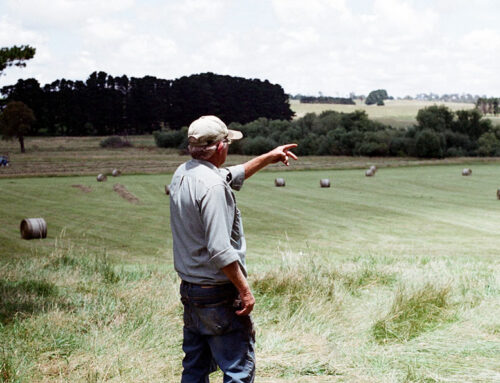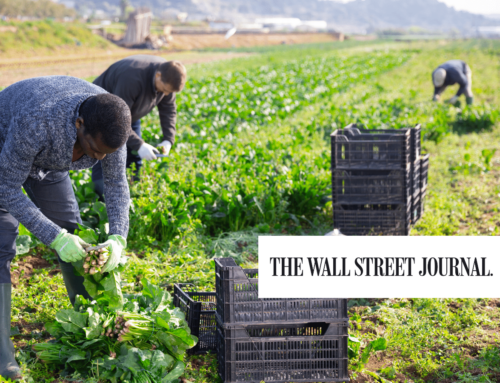Ah, Thanksgiving. What better time to throw an antacid of reality onto the national farm bill policy plate? Goodness knows our agriculture safety net is so generous it might as well be an undemanding post-turkey tryptophan-induced nap at times.
For too long, past farm bills have been written behind closed doors with only a few voices at the table. Agricultural lobbyists demanding more cash are the denizens of the proverbial smoke-filled room, the better to call dibs on stuffing full of giveaways and gobble down taxpayer money. Meanwhile consumers, communities impacted by agricultural programs, and taxpayers footing the bill are often shut out. No cornucopias of waste, sorry, plenty for the rest of us.. Which is why most of the Thanksgiving spread you’re going to eat during what is arguably the nation’s biggest food day wasn’t subsidized, and if it was, barely. So where is all the stuffing full of giveaways going?
Years of back room farm bills mean that the agricultural safety net has drastically expanded to a point where taxpayers heavily subsidize insurance policies for some agricultural producers, as well as provide income entitlement programs for growers of only a select few crops. The playing field is tilted for the politically connected, with crumbs leftover for the rest – if that. Thanks to generous revenue insurance and additional income subsidies for some, fully 72 percent of farmers get nothing.
We have long argued for major reform of federal farm policy, and worked with folks in agreement who span the political spectrum.
Last month, we co-hosted the National Policy Summit on Farm Bill Reform with fellow budget watchdogs, nutritionists, and environmentalists. In an exercise demonstrating how all sides are sick and tired of the status quo, everyone at that table identified common principles of reform to better craft the next farm bill.
Soon after, we found ourselves in another seemingly strange bedfellow coalition when Congressman Blumenauer (D-OR) introduced legislation to reform the agricultural safety net so all industries affected by the farm bill are fairly represented. Except there is nothing strange in believing that taxpayer money should be used responsibly and not wastefully.
The Food and Farm Act would eliminate the costly programs that protect agricultural producers from loss in revenue by sticking it to taxpayers.
According to the Congressional Budget Office, the estimated cost of these programs is more than $45 billion, $18 billion more than originally projected. And with the top 10 percent of subsidy recipients receiving three-quarters of the subsidies under the current scheme.
Many of these farms received millions of dollars every year at the expense of small and medium sized farms. The Food and Farm Act closes some of those loopholes, like the separate payment limit for peanut farmers. The bill would cap income subsidy payments at $125,000 per year – which is doubled for married couples who both farm. But it would eliminate the existing politically motivated carve-out that calculates peanut payments separately – in other words, a grower could no longer get up to $125,000 for peanuts ($250,000 for a couple), and potentially the same amount for all other crops combined. That makes no sense.
To be clear, we don’t agree with every aspect of the bill. But there are plenty of common sense measures to support.
We especially appreciate that the legislation is a result of Mr. Blumenauer building a longer table for everyone to sit at – farmers, environmentalists, fiscal conservatives. It’s shocking really, almost like lawmaking is supposed to be in a democracy.
Snidery aside, governing happens from the middle, and long-lasting substantial reform comes from the willingness to have hard conversations and make tough decisions needed to serve everyone better. As opposed to, say, partisan budget bills, health care reform, and what now looks like tax reform too. How has that served us well? Short version – it has not.
It is time for a fresh, truly bipartisan approach. And there is no doubt that our agricultural safety net reform is a bipartisan issue – to wit, Senators Jeff Flake (R-AZ) and Jeanne Shaheen’s (D-NH) “Harvest Price Subsidy Elimination Act”, which reforms the highly subsidized crop insurance regime.
Don’t believe us? Consider: Record crop prices and incomes have come down. But households with income from farming still, on average, have higher incomes and wealth than non-farming households.
In fact the Department of Agriculture’s Economic Research Service recently estimated that farm sector finances are expected to improve in 2017. Dairy and cotton lobbyists, long proponents of demanding more subsidies to support their businesses, happen to have significant increases in revenue. And yet, farmers who do not need the help get it and vice versa, at the taxpayer’s expense.
It doesn’t have to be this way. It shouldn’t be this way. It’s not sustainable. Now is the time to end the era of lining the pockets of agribusinesses that are able to pull their own weight.
The current farm bill expires September 2018, and lawmakers are beginning the process of writing the next one. Instead of staying in a cushy echo chamber with agriculture industry lobbyists, the Agriculture Committees need to listen to their colleagues and reorient Washington’s role in agriculture to better serve the interests of the entire agriculture sector, consumers that use agricultural goods, communities impacted by agricultural production, and federal taxpayers that are footing the bill.
Taxpayers, and farmers, deserve nothing less than a farm safety net that is cost-effective, transparent, responsive, and accountable.











Get Social